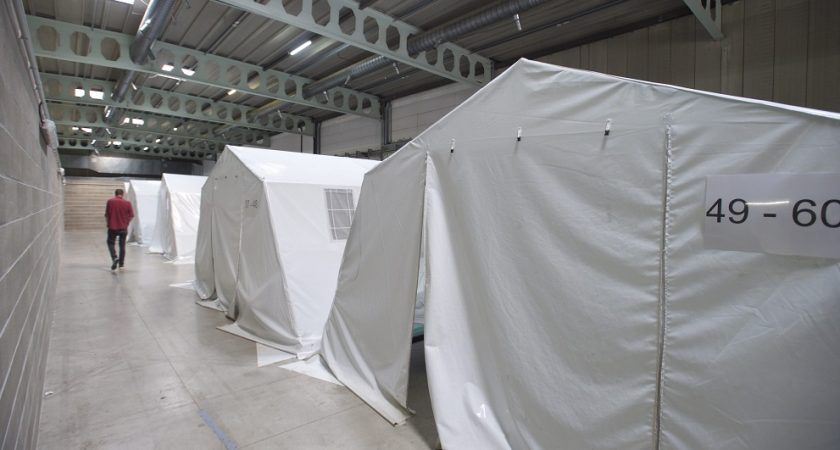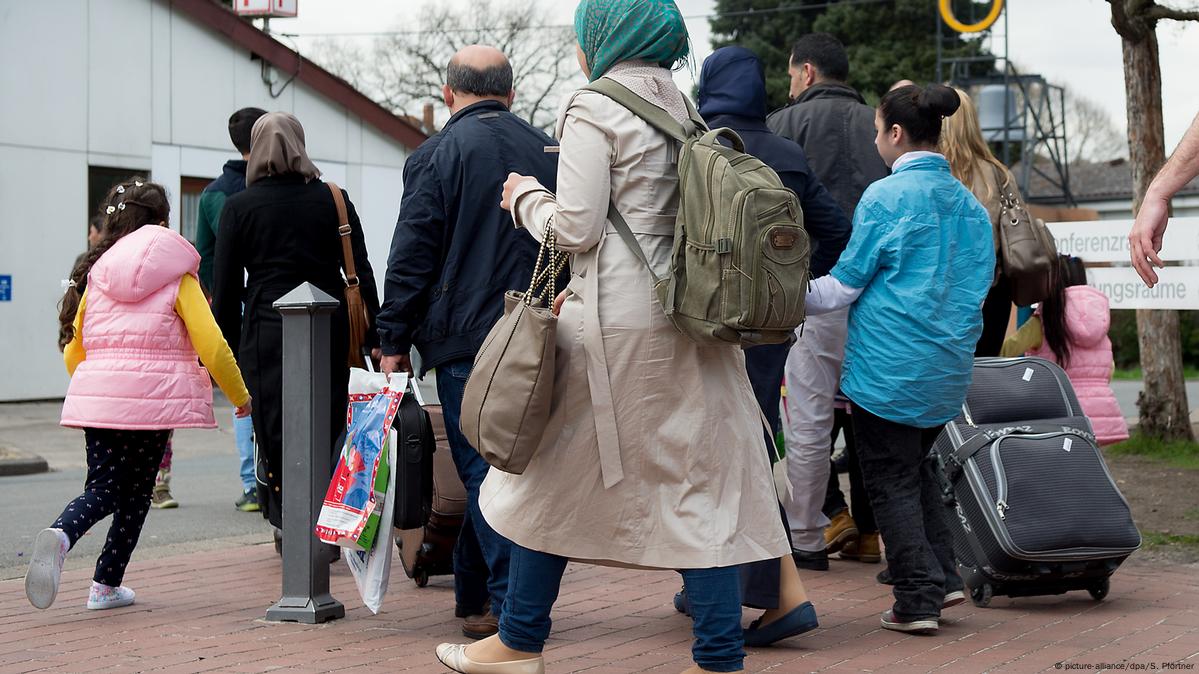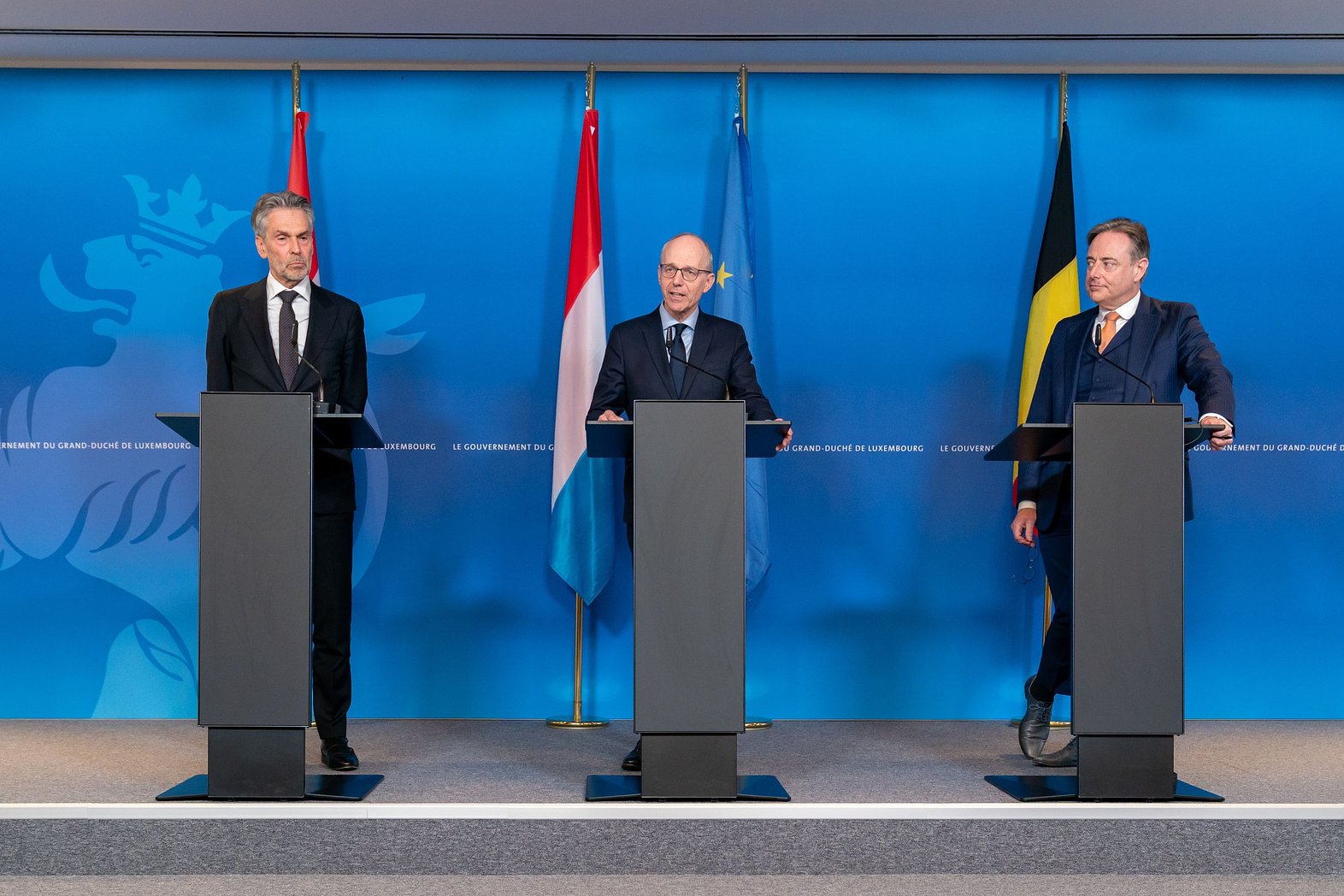Food Safety Alert in Luxembourg: Depo-Ei CV Eggs Recalled Due to Possible Salmonella Contamination ...
Tax Processing Delays in Luxembourg: Finance Minister Provides Clarification ...
Criticism Over Poor Conditions at 'Maison de Retour': Green Party MP Warns the Facility is "Unfit for Children" ...
Is Luxembourg Becoming Stricter on Asylum Seekers? ...
Benelux Alliance: Stronger Than Ever Amid Europe's Challenges ...
How Corporations Avoid Paying Taxes: Legal Loopholes or Corporate Manipulation? ...
Challenges for Non-EU Healthcare Professionals in Luxembourg: A Difficult Path to Work Permits ...
Food Safety Alert in Luxembourg: Depo-Ei CV Eggs Recalled Due to Possible Salmonella Contamination

Luxembourg – March 16, 2025
Health authorities in Luxembourg have issued an urgent recall of eggs produced by Depo-Ei CV due to concerns over potential Salmonella contamination.
According to the official statement, eggs from free-range and floor-raised farms are affected by this recall. The alert level has been raised to "orange", indicating a potential health risk to the public. The warning has also been published on the official government website of Luxembourg.
Details of the Contaminated Eggs
As per the latest information, the recall applies to all eggs with expiration dates between January 27, 2025, and March 24, 2025. Additionally, the following identification codes found on the eggs are included in the recall:
🔹 1-BE-306401
🔹 1-BE-306402
🔹 2-BE-306403
Authorities have warned that these eggs may have already been distributed to various retail stores across the country. Consumers who have purchased them are urged to refrain from consuming the eggs and return them to the point of purchase.
How to Stay Informed About Food Safety Alerts?
Health officials have advised the public to stay updated on this recall and other food safety warnings by regularly checking the official Luxembourg Food Safety website. All latest updates on food safety regulations and recalls will be published there.
ℹ For more details on food safety alerts, visit the official website:
🔗 securite-alimentaire.public.lu
Tax Processing Delays in Luxembourg: Finance Minister Provides Clarification

Luxembourg – March 16, 2025
Recent reports indicate that some tax files in Luxembourg are experiencing delays in processing. Gilles Roth, Minister of Finance, addressed this issue in response to a parliamentary question from Corinne Cahen, a member of the Democratic Party (DP), providing insights into the extent of the delays and their underlying causes.
For taxpayers still awaiting a response regarding their tax returns from previous years, they are not alone—thousands of tax files remain in the processing queue.
Which Years Are Most Affected?
Given the five-year legal deadline for processing tax files, the tax authorities have prioritized 2020 tax files. However, the backlog is not limited to this year alone, as returns from more recent years are also still under review.
According to the finance minister, as of January 2025, the backlog is as follows:
🔹 2020: Only 0.60% of cases remain unprocessed.
🔹 2021: Around 2.15% of cases are still pending.
🔹 2022: The most significant backlog, with 7.27% of cases yet to be processed.
What Is Causing the Delays?
Minister Gilles Roth attributed the delays to two primary factors:
1️⃣ The complexity of certain tax files, which requires extended review times.
2️⃣ Taxpayers submitting their declarations late, leading to administrative congestion.
He emphasized that since 2022, the deadline for filing tax returns has been extended to December 31 (previously March 31). This extension has resulted in a significant increase in late submissions, further straining the tax administration’s capacity to process them in a timely manner.
Government Measures to Reduce Delays
Despite these challenges, the Contributions Directes tax authority has reassured taxpayers that files are being processed in the order they are received.
🔹 To speed up tax processing, the tax office has recently recruited additional personnel.
The Ministry of Finance has expressed confidence that these measures will soon lead to a noticeable reduction in delays, allowing for the remaining tax files to be processed at a faster pace.
Criticism Over Poor Conditions at 'Maison de Retour': Green Party MP Warns the Facility is "Unfit for Children"

Luxembourg – March 16, 2025
At the request of the Les Gréng (Green Party), members of Luxembourg's Parliamentary Committee on Internal Affairs visited the Maison de Retour (Return House) in Kirchberg. The visit, attended by Interior Minister Léon Gloden, aimed to assess the living conditions in the facility.
From Emergency Shelter to 'Return House': No Significant Improvements
In September 2024, the Kirchberg Emergency Shelter (SHUK) was repurposed as Maison de Retour, now operating under the Temporary Detention Center administration. The facility houses asylum seekers who have been ordered to leave Luxembourg due to their irregular residency status. It also accommodates individuals awaiting deportation under the Dublin III regulations, which require asylum seekers to return to the first EU country where they applied for protection.
However, Meris Sehovic, a Green Party MP, has strongly criticized the conditions at the facility, arguing that it remains unsuitable for families and young children. According to Sehovic, the change was merely in name, while the inadequate conditions persist.
"This Facility is Not Suitable for Young Children"
Describing the living conditions inside the center, Sehovic stated:
"The facility is still a cold, sterile hall with a concrete floor, filled with dozens of tents. Each tent contains multiple camp beds. This is no place to house families—especially not young children."
Sehovic emphasized that many of the residents currently housed at the facility are children aged between 0 and 5 years old, raising serious concerns about their well-being.
"Imagine a newborn crawling on a cold concrete floor. These conditions do not meet even the most basic needs of children and pose serious health risks."
60 Out of 170 Beds Occupied
According to official data, 60 of the 170 available beds at Maison de Retour are currently occupied. Notably, two-thirds of the residents are men, most of whom are asylum seekers awaiting deportation under the Dublin Regulation.
Is Change on the Horizon?
Despite mounting criticism, the Luxembourg government has not yet announced any concrete measures to improve conditions at Maison de Retour.
Human rights advocates and several MPs continue to call for alternative housing solutions to ensure that families, particularly those with young children, are accommodated in more humane living conditions.
Is Luxembourg Becoming Stricter on Asylum Seekers?

Luxembourg – March 16, 2025
The Luxembourg government's new asylum policies have raised concerns among migrant rights activists, as stricter measures in processing asylum claims spark mixed reactions.
While obtaining refugee status in Luxembourg has always been a complex and demanding process, recent government decisions have further tightened procedures, leaving many wondering whether the country is becoming less welcoming to asylum seekers.
A Major Shift: Asylum Processing Moved from Foreign Affairs to Interior Ministry
One of the most notable changes in Luxembourg’s migration policy has been the transfer of asylum case processing from the Ministry of Foreign Affairs to the Ministry of the Interior following the government transition.
While some view this as a mere administrative change, others, including prominent social activist Marianne Donven, believe it signifies a fundamental shift in approach.
Donven, who recently resigned from the Ministry of Foreign Affairs, expressed her concerns:
"Previously, there was a certain degree of flexibility in handling rejected asylum cases. It was extremely difficult for me to see single mothers with their children being forced out of shelters. In the past, we had the option to escalate exceptional cases to Minister Jean Asselborn, which sometimes led to residence permits being granted. Now, the laws are being enforced without exception, and with much greater rigidity."
She also criticized the slow processing of asylum cases, which has added to the difficulties faced by many applicants.
Criticism of Tougher Policies, But Praise for Some Decisions by Minister Gloden
Despite her criticism of the increasingly restrictive policies, Donven acknowledged that Interior Minister Léon Gloden has introduced some positive measures, including granting residence permits to around 100 individuals and allowing some migrants to obtain work permits under exceptional circumstances.
However, she maintains that the asylum system in Luxembourg remains a battleground, where applicants must provide extensive evidence proving they face life-threatening persecution due to political, religious, ethnic, or gender-based risks in their home countries.
Who Has the Best Chance? Some Nationalities Are More Likely to Be Accepted
Data indicates that asylum seekers from Eritrea and Afghanistan generally receive more favorable treatment due to the unstable political conditions in their home countries.
In contrast, asylum applications from Moroccan and Venezuelan nationals are frequently rejected.
A key factor in the evaluation process is distinguishing between political refugees and economic migrants. Applicants must demonstrate that they are fleeing genuine threats to their lives rather than simply seeking better economic opportunities.
Challenges in Deporting Rejected Asylum Seekers
One of the major hurdles for the Luxembourg government is enforcing the deportation of migrants whose asylum claims have been denied.
Last month, Minister Léon Gloden emphasized:
"Those who genuinely qualify for international protection must receive their decisions as quickly as possible so they can integrate into society. Conversely, those who have no chance of being granted asylum must be made aware of this and return to their home countries as soon as possible. We must not give these individuals false hope."
A Rise in Deportations, But Key Obstacles Remain
According to official statistics, in 2024, Luxembourg deported 438 migrants, including 98 rejected asylum seekers and 340 undocumented migrants. This figure represents a 56% increase compared to 2023.
However, despite this rise, deportations remain a complex challenge. One major issue is the lack of cooperation from some countries in issuing the necessary documents and permits for the repatriation of their citizens. This has resulted in many migrants being left in legal limbo, unable to stay in Luxembourg but also unable to return home.
A Tough Road Ahead for Asylum Seekers in Luxembourg
While the Luxembourg government continues to enforce tougher regulations on asylum and irregular migration, critics argue that these policies could further expose vulnerable individuals to hardship.
With the New European Pact on Migration and Asylum set to be finalized by June 2026, Luxembourg’s migration policies are expected to undergo further changes, potentially reshaping the country’s stance on asylum seekers in the years to come.
Benelux Alliance: Stronger Than Ever Amid Europe's Challenges

Luxembourg – March 16, 2025
The Prime Ministers of Belgium, the Netherlands, and Luxembourg convened in Luxembourg last week to discuss deepening trilateral cooperation in key areas.
Hosted by Luxembourg's Prime Minister Luc Frieden at Château de Senningen, the meeting brought together Bart De Wever, Prime Minister of Belgium, and Dick Schoof, Prime Minister of the Netherlands, to reinforce the Benelux alliance amid growing geopolitical and economic uncertainties.
Benelux: More Relevant Than Ever in a Turbulent Era
During the meeting, Dutch Prime Minister Dick Schoof emphasized the continued relevance of the Benelux alliance in the face of global instability, stating:
"This alliance is not just part of history—it is more critical than ever in today's volatile world, marked by wars and insecurity. Europe has received the message loud and clear: now is the time to rise, but together. This is crucial not only for Europe as a whole but also for the Benelux region, especially in terms of security."
Defense and Security Cooperation: Strengthening Benelux’s Strategic Ties
The 90-minute meeting focused on key strategic issues, particularly defense and security cooperation. Luxembourg’s Luc Frieden underscored the need for closer military collaboration, stating:
"Our three nations must expand military cooperation. Joint procurement or production of defense equipment will enhance efficiency and enable faster response times in crisis situations."
In alignment with these efforts, Prime Minister Schoof reaffirmed the Netherlands' unwavering support for Ukraine, stressing:
"Ukraine can count on our support. Our security is directly tied to theirs."
Combating Crime and Illegal Migration: Expanding Police Cooperation
The discussion also focused on enhanced police collaboration to tackle organized crime and illegal migration.
While praising the Schengen Agreement, which enables free movement within member states, the Benelux leaders emphasized the need for stricter measures against illegal migration and transnational crime networks.
Luxembourg’s Luc Frieden commented:
"I fully understand why Germany has reintroduced certain border controls, given the high volume of irregular migration. However, such measures could undermine our social cohesion."
Belgium’s Bart De Wever echoed this sentiment, questioning the effectiveness of internal border controls:
"Personally, I remain unconvinced that reinstating internal European border checks is the right solution. There are far more effective ways to address these challenges."
A Stronger Economy for a More Resilient Europe
Emphasizing the importance of economic stability, Dutch Prime Minister Dick Schoof stated:
"A strong economy is the key to maintaining Europe's stability. In the Benelux region, we will take all necessary steps to enhance our competitiveness."
Luxembourg’s Luc Frieden also called for reducing bureaucratic obstacles to boost economic efficiency, adding:
"Benelux serves as the gateway to Europe. This is a strategic advantage that we must invest in and capitalize on."
History Repeats Itself: Europe Faces Crisis Once Again
Reflecting on the origins of the Benelux alliance, Belgian Prime Minister Bart De Wever reminded attendees that it was established in September 1944, during the final stages of World War II.
"Our three nations decided to unite in order to overcome a crisis. Today, we face a similar situation—there is a war in the heart of Europe, and it inevitably affects us."
He also warned that the stability and security that Europe has enjoyed for decades are no longer guaranteed:
"It is time for us to sit together within the Benelux framework and assess how we can navigate this crisis and emerge stronger from it."
First Benelux Summit for Belgium and the Netherlands' New Leaders
This meeting marked the first Benelux summit for both Bart De Wever and Dick Schoof since assuming office. It was also the Belgian Prime Minister’s first international visit since taking up his role.
A Foundation for Expanded Benelux Cooperation
With Europe facing mounting crises, this Benelux summit could pave the way for broader cooperation in security, economic resilience, and combating organized crime, reinforcing the alliance’s role as a key player within the European Union.
How Corporations Avoid Paying Taxes: Legal Loopholes or Corporate Manipulation?

Luxembourg – March 16, 2025
Profit shifting, shell companies, and internal loans—these are just a few of the strategies that major corporations use to reduce their tax liabilities.
For some, these methods are a form of legalized theft, while for others, they are simply an economic necessity. Tax revenue is one of the most crucial financial resources for governments, yet many multinational corporations exploit legal loopholes to minimize their tax burden and maximize profits.
The European Union’s Crackdown on Tax Avoidance
In response to growing concerns over corporate tax evasion, the European Union has implemented several measures to curb aggressive tax avoidance schemes.
One of these is the DAC6 Directive, which requires corporations and tax advisors to report cross-border tax arrangements that may be used to shift profits unfairly. The primary goal of this regulation is to identify tax avoidance strategies and prevent companies from exploiting regulatory gaps.
In Luxembourg alone, 2,806 tax-related reports were filed under DAC6 by the end of 2023. Additionally, 9,521 cases were received from other EU member states, highlighting Luxembourg’s role as a key jurisdiction in Europe’s corporate tax landscape.
Profit Shifting: A Preferred Strategy for Big Corporations
According to Gilles Roth (CSV), who responded to a parliamentary inquiry on tax avoidance, one of the most widespread corporate tax strategies is profit shifting.
💰 How does profit shifting work?
🔹 A corporation sells products or services in a country with high tax rates.
🔹 Instead of reporting profits there, it shifts them to a jurisdiction with lower taxes.
🔹 This maneuver allows companies to save millions of euros in taxes annually.
One classic example of this technique is transfer pricing manipulation. In this scheme:
🔹 A company inflates costs for services or intellectual property fees charged to its own subsidiaries abroad.
🔹 As a result, profits in high-tax countries decrease, while they increase in low-tax jurisdictions.
Internal Loans: A Trick to Minimize Taxable Income
Beyond profit shifting, corporations deploy sophisticated financial structures to lower their taxable income.
One common method is internal loans between subsidiaries.
🟢 How does this work?
🔹 A company borrows money from one of its subsidiaries based in a low-tax jurisdiction at a high-interest rate.
🔹 The interest payments on this loan are deducted as an expense, reducing taxable income in the high-tax country.
🔹 Meanwhile, in the low-tax country, the interest income is taxed at a much lower rate or not taxed at all.
This technique enables corporations to artificially move profits from high-tax to low-tax jurisdictions, minimizing their overall tax liability.
Shell Companies: Hiding Profits Behind Legal Structures
Another widely used tactic is the creation of shell companies, often referred to as "Boîtes aux lettres" (letterbox companies).
📌 These companies are typically registered in countries with either zero or extremely low corporate tax rates. They also benefit from strict financial secrecy laws, making it difficult to trace their real owners.
🔹 Countries like Luxembourg, Malta, and Cyprus are well-known destinations for these types of tax haven entities.
🔹 In many cases, the real owners remain anonymous, while the shell company serves only to hold assets and reduce tax exposure.
Abusing Tax Treaties to Avoid Any Tax Payments
Double Taxation Agreements (DTAs) were originally designed to prevent companies from being taxed twice on the same income. However, corporations have found ways to manipulate these treaties to avoid taxes altogether.
🟢 How does it work?
🔹 A company structures its profits in such a way that in Country A, they are exempt from tax because Country B is responsible for taxation.
🔹 However, in Country B, the profits also remain untaxed, creating a loophole.
🔹 As a result, the company pays no tax in either jurisdiction while keeping the entire profit.
One of the most infamous tax schemes exploiting these loopholes was the "Double Irish with a Dutch Sandwich", a structure widely used by tech giants for years. While stricter regulations have since limited this approach, corporations continue to develop new workarounds.
The Art of "Legally Disappearing Money"
Many multinational corporations have mastered the art of shifting, hiding, and minimizing their tax burdens through complex financial engineering.
🔹 While governments push for stricter regulations, corporations continuously innovate new ways to cut taxes.
🔹 As the EU intensifies its fight against tax avoidance, the question remains:
Will tougher regulations finally put an end to these practices, or will big businesses continue to find new loopholes to exploit?
Challenges for Non-EU Healthcare Professionals in Luxembourg: A Difficult Path to Work Permits

Luxembourg – March 16, 2025
A veterinarian trained in Algeria, despite obtaining Luxembourgish citizenship, has been denied a work permit, highlighting the bureaucratic and regulatory hurdles faced by healthcare professionals with non-EU qualifications in Luxembourg.
The process of integrating into the country's healthcare sector is far from straightforward for those who earned their degrees outside the European Union. While their academic credentials may be officially recognized, their professional qualifications are often not.
This issue is not isolated to one profession—many non-EU healthcare specialists face similar administrative and language barriers, making it difficult to secure approval to work within Luxembourg’s healthcare system.
Why Are Non-EU Degrees Not Easily Recognized?
Certain medical and healthcare professions, such as veterinary medicine, are strictly regulated in Luxembourg. This means that anyone wishing to practice must obtain official recognition of their professional qualifications.
However, for those who earned their degrees outside the EU, the recognition process is significantly more complex.
🔹 The Ministry of Higher Education in Luxembourg explained:
"Luxembourg does not have an equivalent academic program to compare with veterinary training in Algeria. As a result, this veterinarian must first have their qualifications validated in another European country."
Yet, the process is not as simple as it seems. Applicants must also comply with the specific requirements of the EU country they apply to.
The affected veterinarian shared his frustration:
"I even considered starting my studies from scratch at the University of Liège (Belgium), but priority admission was given to those without a prior degree."
200 Healthcare Professionals Awaiting Work Permits
The recognition hurdles extend beyond veterinary medicine.
🔹 A trained electrophysiology technician from Italy who successfully had his academic qualifications recognized still encountered obstacles.
🔹 In Luxembourg, this field is typically handled by nurses, meaning the applicant was required to retrain as a nurse.
However, enrolling in a nursing program posed another challenge—a B2-level German language requirement, effectively barring him from pursuing the qualification.
He commented:
"I am now working to develop the required skills so I can qualify as a nurse and eventually return to my profession."
📊 According to Luxembourg’s Ministry of Labor, as of January 2024, around 200 healthcare professionals with non-EU degrees were living in Luxembourg without work permits.
📌 Of these, 50% claimed to meet the required language proficiency (B2 level in German or French).
Most Applications Are Approved, But Some Are Still Rejected
Despite these challenges, official data from the Ministry of Higher Education reveals that between 2021 and 2024:
✅ 96% of medical degree recognition requests were approved.
✅ 94% of applications for other healthcare professions received approval.
However, during the same period:
❌ 5.7% of professional qualification requests for medical professions and psychotherapy were rejected.
Strict Standards Versus Workforce Shortages: The Ongoing Debate
While the Luxembourg government maintains rigorous standards for medical and healthcare professions, foreign-trained professionals continue to face significant barriers to entering the domestic job market.
As Luxembourg grapples with healthcare worker shortages, the challenge remains:
📢 Can the country strike a balance between maintaining high professional standards and easing entry barriers for qualified non-EU healthcare professionals?
